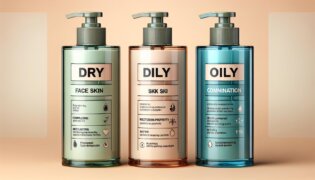It is not recommended to get Botox while taking aspirin, as aspirin thins the blood and may increase the risk of bruising and bleeding at the injection site. Consult your healthcare provider before receiving Botox treatment if you are taking aspirin.
Aspirin and Botox Interaction
Aspirin acts as a blood thinner, which may lead to increased bleeding and bruising at the injection site after Botox treatment. It’s essential to inform your healthcare provider of any medications you are taking, including aspirin, prior to receiving Botox.
Alternative Pain Management Solutions
If you are using aspirin for pain management, consider discussing alternative medications with your healthcare provider before Botox treatment to minimize the potential for bruising and bleeding.
Skincare Logix: Skincare Tips for Botox Patients
At Skincare Logix, a blog about skincare, we recommend that Botox patients focus on skin health to optimize treatment results. Proper hydration, a balanced diet, and a well-formulated skincare routine are essential components for maintaining healthy skin.
Skin Tags and Botox
Botox is not a treatment for skin tags. If you are concerned about skin tags, seek advice from a dermatologist or skincare professional for appropriate skin tags remover options and safe removal techniques. Remember that skin tags are a common skin condition and should not be self-removed to avoid potential complications.
Understanding Botox and Aspirin
Botox is a popular cosmetic treatment used to reduce the appearance of wrinkles and fine lines by relaxing facial muscles. Aspirin, on the other hand, is a common over-the-counter medication known for its pain relieving and anti-inflammatory properties. It also serves as a blood thinner, which raises concerns when combined with Botox treatments.
The Risks of Combining Botox and Aspirin
When aspirin is taken prior to Botox treatment, its blood-thinning effects may lead to increased bleeding and bruising at the injection site. This is not ideal for patients seeking optimal cosmetic results, as these side effects can be more noticeable and may take longer to heal. At Skincare Logix, a blog about skincare, we advise considering alternative pain relief options before undergoing Botox to minimize potential complications.
Discussing Medications with Your Healthcare Provider
It is crucial to have an open conversation with your healthcare provider about any medications or supplements you are taking, including aspirin. They may recommend temporarily discontinuing the use of aspirin before your Botox appointment or suggest alternative medications for pain management. Your healthcare provider will help you determine the best course of action to ensure a safe and effective Botox treatment.
Preparing for Botox Treatment
Proper preparation is key to achieving the best possible Botox results. Skincare Logix recommends focusing on skin health by maintaining a balanced diet, staying hydrated, and following a well-designed skincare routine. Avoiding aspirin and other blood-thinning medications will also help minimize the risk of bruising and bleeding during your Botox treatment.
Post-Botox Skincare
After receiving Botox, it’s essential to care for your skin to optimize treatment results. Skincare Logix suggests using gentle, fragrance-free cleansers and moisturizers and applying sunscreen daily. Make sure to avoid rubbing or massaging the injection site for the first 24-48 hours, as it may cause the
Frequently Asked Questions
After reading the blog post ‘Can I Get Botox While Taking Aspirin?’, you might have some additional questions about Botox and aspirin interaction. Here, we’ve compiled a list of common frequently asked questions to help further your understanding.
How long before Botox treatment should I stop taking aspirin?
It’s generally recommended to discontinue aspirin use at least 7-10 days before Botox treatment. However, you should consult with your healthcare provider for personalized advice about medications before receiving Botox.
What other medications should I avoid before a Botox treatment?
Aside from aspirin, other blood-thinning medications and supplements, such as ibuprofen, naproxen, warfarin, and fish oil, should also be avoided before Botox treatments. Speak with your healthcare provider for a comprehensive list of medications to avoid.
What can I do to minimize bruising after a Botox treatment?
To minimize bruising, consider avoiding blood-thinning medications, using ice packs to reduce swelling, keeping your head elevated, and avoiding strenuous activities for 24 hours post-treatment. Arnica gel or tablets may also help reduce bruising.
Can I use over-the-counter painkillers for pain relief after Botox?
Over-the-counter painkillers such as acetaminophen can be used for pain relief after a Botox treatment. However, avoid aspirin, ibuprofen, and naproxen, as these medications may increase the risk of bruising and bleeding.
Is it safe to get Botox if I have a medical condition that requires me to take blood-thinning medications?
Consult with your healthcare provider about your medical condition and the necessity of blood-thinning medications before receiving Botox. They will consider your condition and risks associated with it when determining the safety and appropriateness of Botox treatment.





















